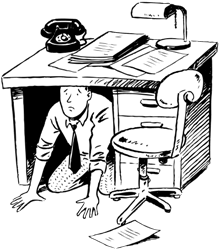Present Perfect
Progressive Tense
(presente perfecto progresivo)
(presente perfecto continuo))
El Present Perfect Progressive (presente perfecto progresivo) es un tiempo verbal muy común en inglés. Deberías entenderlo y poder usarlo correctamente.
Click Here for Step-by-Step Rules, Stories and Exercises to Practice All English Tenses
¿Qué sigue?
¿Cómo utilizamos este tiempo verbal?
Aquí, PERFECTO significa "completado, terminado".El Present Perfect Progressive (presente perfecto progresivo) es una forma del verbo que muestra que la acción empezó en el pasado y continuó hasta el presente.
No significa que la acción es "perfecta" (o sea, 100%). Significa que la acción está terminada.
Estos son
algunos de los diferentes usos que tiene este tiempo verbal:
-
Un acción que empezó en el pasado y continuó hasta el presente
- Para mostrar que algo estaba pasando últimamente
Asegúrate de leer también:
Una
acción que empezó en el pasado
y continuó hasta el presente
(Los verbos están en negrita)
She has been reading
for the last 2 hours.
(Ha estado leyendo durante las últimas 2 horas.)

He has been sitting under
the desk for the last hour.
(Ha estado sentado debajo del escritorio durante la última
hora.)

He has been talking on
his mobile since he got here.
(Ha estado hablando por celular desde que llegó aquí.)

He has
been working in our hotel since 2005.
(Ha estado trabajando en nuestro hotel desde el 2005.)

(Está muy cansado porque ha estado corriendo todo el día.)

They have
been working hard, so now they want to party.
(Han estado trabajando muy duro, así que ahora quieren festejar.)

He feels sick because he has been drinking
too much.
(Se siente enfermo porque ha estado bebiendo demasiado.)

Para
mostrar que algo estaba pasando últimamente
Lately, she has been
playing really well.
(Últimamente ha estado jugando muy bien.)

She has been working a
lot recently.
(Ha estado trabajando mucho últimamente.)

He has
been having difficulty writing.
(Ha estado teniendo problemas para escribir.)

Recently, he has been getting into
too much trouble.
(Ha estado metiéndose en demasiados problemas últimamente.)

I have
been feeling better lately.
(Me he sentido mejor últimamente.)

Ejemplos
de
expresiones de tiempo típicos
| Up to
now (Hasta ahora) |
Recently
(Recientemente) |
| for (durante) |
lately (últimamente) |
| since (desde) |
recently (recientemente) |
| all morning (toda la mañana) |
|
| all day (todo el día) |

¿Qué sigue?
Get Updates, Special Offers, and English Resources
Download your FREE GIFT (the first two chapters of
English Short Stories Book and Workbook)
as soon as you join!

By submitting your email, you consent to receiving updates and newsletters from us and to the sharing of your personal data with third parties for the purposes of sending you communications. We will not spam you. You can unsubscribe at any time. For more information, please see our privacy policy.





